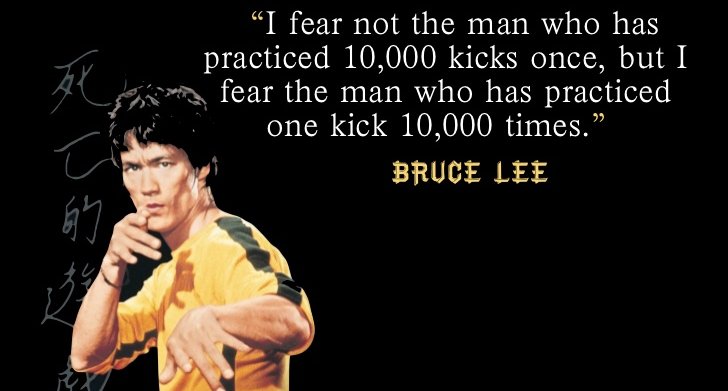Overcoming ordinary
We’ve been head down ever honing our skills helping clients to be extraordinary.
This got me thinking, that we live in a world in which in one or two steps anyone can build just about anything. While this is progress, is it also increasing willingness to accept ordinary?
“The difference between ordinary and extraordinary is practice.” Vladimir Horowitz
Professional musicians often talk of the intense practice to build mental and motor skills — to the point where they are playing somewhat on auto pilot.
“Learning to play the guitar is a combination of mental and motor skills acquisition. And, to develop motor skills, repetition is essential.” Howard Roberts
This guided me to the concept of ‘deliberate practice.’ Deliberate practice assumes that expert-level performance is primarily the result of expert-level practice NOT due to innate talent.
In Malcolm Gladwell’s book ‘Outliers’ he argues that elite performers have upward of 10,000 hours of practice, more than twice that of others. As the authors of the earlier research simplified by Gladwell note …
“Research has shown this to be true in field after field. It generally takes about ten years of intense study to become a chess grandmaster. Authors and poets have usually been writing for more than a decade before they produce their best work, and it is generally a decade or more between a scientist’s first publication and his or her most important publication”
My fear is that as we move forward, there will be an increasing tendency towards people being a ‘jack of all trades’ rather than a ‘master of one.’ Rather than opting for deep ‘superpowers’ in a focused area, people will prefer to be mediocre in many.
Entrepreneurs are said to succeed by ‘failing fast.’
But, perhaps true success comes more so from learning fast, practice (and practice, and practice, and practice), gaining ongoing feedback, learning, iterating and getting better, and practicing some more (and some more), and eventually moving beyond the ordinary.
If success is seen to come from failure, perhaps we are missing the point, and giving up too soon.
I’ll leave the closing words to one of history’s great entrepreneurs – inventor of the phonograph, the motion picture camera, and the long-lasting, practical electric light bulb – Thomas Edison …
“I have not failed. I’ve just found 10,000 ways that won’t work.”
My full, uncensored, article of ‘Overcoming ordinary’ can be found here.
Thank you, and please aim for the extraordinary!
Originally posted: Nov 3, 2016




